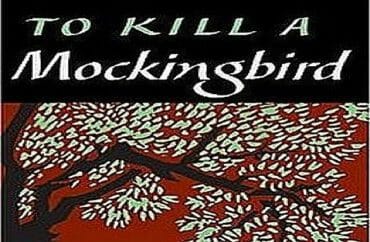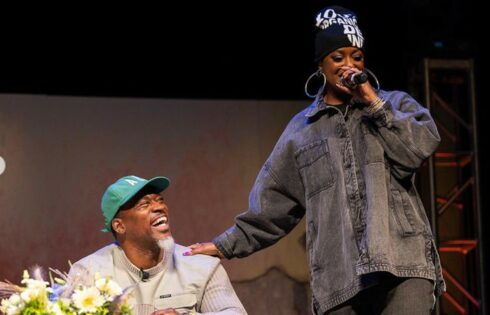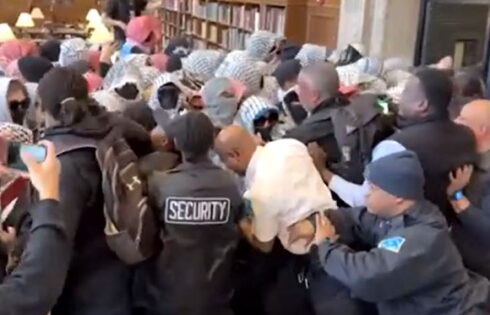
One critic calls the movement’s aims ‘almost criminal’
Tony Kinnett first encountered the ideas behind #DisruptTexts in 2016 while student teaching in rural Indiana.
“There was a teacher who was changing how she taught some of the books that were normally taught in her middle school classroom,” he told The College Fix. “She had basically left out a lot of classical literature in exchange for some modern pieces that were written by more diverse authors.”
After encountering others who wanted to cut “ethnically white” classics in his Master’s Degree program, Kinnett — educator, curriculum developer, and co-founder of The Chalkboard Review — knew something was off. While they claimed the classics were not diverse enough, he noted a deeper reason for the change.
“Realistically, it was that they were the foundational building blocks of Western Civilization,” Kinnett said. “So [the authors] disagree with the collectivist ideas that the #DisruptTexts movement supports.”
According to its website, #DisruptTexts is “a crowdsourced, grass roots effort by teachers for teachers to challenge the traditional canon” using an antiracist lens. This push for a “more inclusive, representative, and equitable language arts curriculum” has left beloved and time-tested novels in the dust.
Take “To Kill a Mockingbird” as an example. Few would call Atticus Finch problematic, but #DisruptTexts has no qualms with doing so. By their analysis, he’s a white savior who “doesn’t see the need to publicly disrupt the legal system.” Not an antiracist, certainly not a hero.
#DisruptTexts wants more teachers to take this approach to literature. This summer, they’re showing educators how.
Preparing to disrupt the new school year
As part of its Professional Development program, Heinemann Publishing is sponsoring two summer workshops featuring the four #DisruptTexts co-founders. For $125, teachers can spend the day on a Zoom seminar learning how to advocate for “antiracism” in their own schools.
The July 20th and August 11th sessions align with #DisruptTexts’ four core principles: interrogate personal biases, focus on literature by “Black, Indigenous, and voices of color,” apply critical race theory to teaching, and work together with other “antiracist educators.”
Similarly, the National Write Center (funded in part by the U.S. Department of Education) is hosting a July 21 talk on “Anti-Bias Literacy Instruction for Stronger Readers, Writers, and Thinkers” with #DisruptTexts co-founder Tricia Ebarvia.
Many smaller workshops, which are not directly affiliated with #DisruptTexts but cover comparable content, are also taking place. Teachers as Scholars is hosting one on Using Young Adult Literature for Teaching Social Justice with Boston University professor Christina Dobbs, and the TCNJ School of Education is focusing on Teaching LGBTQIA Literature in Secondary School.
The #DisruptTexts movement has gained traction over the past few years. In 2020 alone, its co-founders spoke at webinars with PBS, the National Board of Certified Teachers, and multiple universities; were published in several academic journals; and were even featured in the New York Times, as they tout on their website.
Partnering with the publishers
While #DisruptTexts aims to reach teachers directly, they’ve also struck deals with the companies creating children’s books and classroom materials.
Heinemann Publishing, which produces professional resources for teachers and classroom curriculum, is not only is hosting a workshop featuring #DisruptTexts, but also named #DisruptTexts co-founder Julia E. Torres as one of its 2018-2020 fellows. One of the other co-founders, Tricia Ebarvia, was also a fellow in 2016-2018.
Heinemann did not respond to questions from The College Fix regarding the workshop or its association with #DisruptTexts. It is not the only publisher to collaborate with the movement.
In November 2020, Penguin Random House and #DisruptTexts co-published a guide featuring eight books and accompanying material to help teachers introduce new texts into the classroom.
The first lesson, aimed at students in kindergarten through second grade, is on the book “Antiracist Baby” by Ibram X. Kendi. Teachers are instructed by the guide to ask six-year olds questions like, “What does antiracism look like in action?”, “What is advocacy?” and “What is the difference between kindness and antiracism?”
One goal of the lesson is to make sure they “understand that just because one is kind doesn’t automatically mean they’re antiracist.” For Kinnett, this narrow perspective is one of the key reasons #DisruptTexts is harmful to students.
“Take all the racial stuff and set it aside. The Western canon is just objectively better literature.” Kinnett said. “It is a higher form of language. It requires you to think. The plots aren’t spoon-fed to you. The moral of the story isn’t so black and white that it’s like watching a PBS after-school special.”
Another lesson in the Penguin Random House guide suggests replacing “The Great Gatsby” with “Juliet Takes a Breath”–a book about a “queer Latinx woman” interning under a feminist writer in Portland. It urges teachers to help teenagers “feel comfortable knowing they can read about ideas on sexuality, gender, and beliefs associated with both.”
All eight lessons include a list of key concepts and vocabulary at the end. Words include microaggression, intersectionality, patriarchy, colonialism, and toxic masculinity.
Kinnett warned that these kinds of buzzwords can create problems for people pushing back on curriculum changes. When critics don’t understand them, it allows proponents to simply label them ‘stupid.’
“In the #DisruptTexts movement, the big thing you’re going to see is ‘Culturally Relevant Pedagogy’, which is, at best, a pandering concept, and at worst, a horribly racist concept,” he said.
Culturally Relevant Pedagogy means teaching in a way students will understand, based on the culture they come from. Though it sounds good on the surface, Kinnett argues it often deteriorates into decentering an abstract idea of “whiteness.”
“Culturally Relevant Pedagogy isn’t about adding in new materials,” he said. “It’s about ripping apart the old materials to make space for the new.”
You don’t have to burn books, just call them racist
Ray Bradbury once said you don’t have to burn books to destroy a culture. You just have to get people to stop reading them. Now Bradbury himself is part of the discouraged “white cannon” activists want to remove from schools.
THIS right here, is exhibit A of why it is so necessary to #DisruptTexts. What do you notice? What do you wonder? Whose canon is it? And written for whom? What are we teaching our Ss when these are the texts we give provide, consistently and relentlessly? pic.twitter.com/t6k2NWdWNF
— #DisruptTexts (@DisruptTexts) April 18, 2020
#DisruptTexts claims it is against censorship and book banning. That’s not what happens in practice.
When #DisruptTexts co-founder and “literary organizer” Kim Parker asked her Twitter followers which texts should be jettisoned, teachers were happy to cut anything and everything traditionally taught.
“What book(s) have you taught in your career that you are now ready to let go and not teach again? Why?” she asked. Hundreds of responses poured in condemning everything from “James and the Giant Peach” to “The Great Gatsby,” “To Kill a Mockingbird,” and Dr. Seuss.
https://twitter.com/TchKimPossible/status/1367870429797494786?s=20
The #DisruptTexts website features stories of educators successfully changing the texts in their classrooms. Carrie Mattern, a high school teacher in Michigan, sidelined “To Kill a Mockingbird” in favor of “The Hate U Give.”
“After reading ‘The Hate U Give,’ and researching the names on page 443 for our research project to honor Black Lives Matter in schools week, we moved into a discussion of healthy relationships that Thomas provided readers in text,” she said to #DisruptTexts.
Another teacher inspired by seeing #DisruptTexts on Twitter “took out all of the readings by white authors aside from ‘Self-Reliance’, ‘On Civil-Disobedience,’ and ‘The Great Gatsby.’”
These changes are implemented in the name of expanding diversity. Yet in many cases, Kinnett suggests, they actually limit it by stripping away the richness and variety of the Western Canon.
“Frederick Douglass said that the works that he studied–the selection of the Western Canon–liberated a man. It literally gives young men and young women the tools to recognize their abilities–that God created them these beautiful creatures and individuals who are capable of just about anything,” he said, noting that the Western Cannon itself helped build the culture and civilization that ended slavery.
“Some of the modern texts that they’re supplementing in may be OK books,” he said. “I do think we should have some diverse authors and some modern stuff, but classical literature, to throw away such delicacies, academically, is almost criminal.”
‘Get your house in order first’
For concerned parents, Kinnett says the most important way they can push back on movements like #DisruptTexts is not advocacy. It’s engaging with kids at home.
“Advocacy is important. Holding school boards to a strong reckoning is incredibly important. After all, in writing our CRT toolkit one of the things we talk about is advocacy.” he said. “But unless you have to have your house in order first, you can’t.”
The Chalkboard Review’s critical race theory toolkit is designed to help parents understand the ideas behind movements like #DisruptTexts and push back on them. Yet, the Review insists that parents’ first job is to teach their own kids.
“That may involve a working-class adult in the US picking up a couple of these great literature pieces and going through them with their kids,” Kinnett said. “[Parents] need to be reading to younger kids. They need to be reading what kids bring home. And they need to make an investment into what their child’s seventh grade English class is teaching them.”
MORE: ‘To Kill a Mockingbird’ madness reaches north to Canada
IMAGE: Rachel Gonzalez/Flickr
Like The College Fix on Facebook / Follow us on Twitter






Please join the conversation about our stories on Facebook, Twitter, Instagram, Reddit, MeWe, Rumble, Gab, Minds and Gettr.